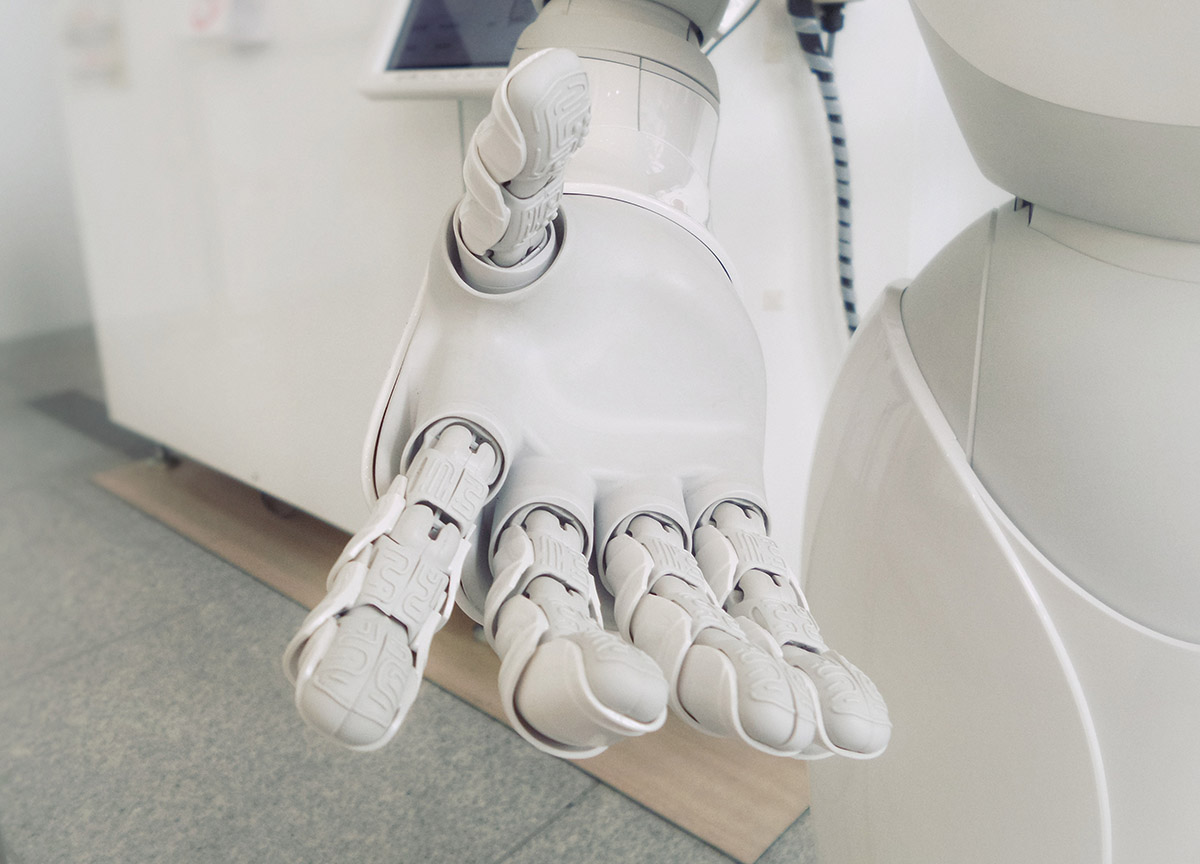Recruiting new talent is a critical task for any organization, and using AI in talent acquisition is becoming increasingly popular.
With advancements in technology, artificial intelligence (AI) has emerged as a powerful tool to streamline and enhance the candidate screening process.
AI, or artificial intelligence, refers to the ability of computer systems to perform tasks that typically require human intelligence.
In the context of candidate screening, AI algorithms are designed to analyze and evaluate candidate profiles based on predefined criteria.
These algorithms can process and interpret vast amounts of data at high speed, allowing recruiters to quickly and efficiently sort, evaluate, and screen candidates, saving time and effort in the recruitment process,
If you’re facing the challenge of sorting through a large list of candidates and want to streamline the process, AI-powered candidate screening can be a game-changer.
In this comprehensive guide, we’ll explore how AI can revolutionize your candidate screening process and help you find the best-fit candidates efficiently.
Table of Contents
Importance of efficient candidate screening for hiring success
Efficient candidate screening is a critical factor in achieving hiring success for organizations.
With a large pool of candidates to evaluate, recruiters face the challenge of identifying the most qualified individuals who align with the job requirements and company culture.
This is where leveraging AI for candidate screening can make a significant impact.
By streamlining the screening process and leveraging advanced algorithms, AI can help organizations achieve the following benefits:
1. Time and resource savings
Efficient candidate screening using AI significantly reduces the time and resources required for manual resume parsing and evaluation.
AI algorithms can quickly process and analyze a high volume of applications, allowing recruiters to focus their efforts on engaging with qualified candidates and conducting more in-depth interviews.
By automatically parsing resumes, AI screening tools can extract details such as candidate qualifications, skills, work experience, and education history, saving recruiters valuable time and effort.
This not only speeds up the hiring process but also frees up valuable time for recruiters to focus on other strategic activities.
2. Enhanced objectivity and reduced bias
Human bias can unintentionally influence hiring decisions, leading to potentially unfair practices.
AI-powered candidate screening helps mitigate bias by applying consistent evaluation criteria to all applicants.
By focusing on objective data and qualifications, AI algorithms ensure that each candidate is evaluated based on merit, increasing fairness in the hiring process.
3. Improved accuracy in identifying top candidates
Efficient candidate screening powered by AI algorithms helps identify top candidates who possess the right skills, experience, and qualifications.
By analyzing various data points, such as education, work history, and keywords, AI algorithms can quickly identify candidates who closely match the job requirements.
This enables recruiters to prioritize their attention on the most promising candidates, increasing the chances of making successful hires.
4. Scalability and consistency
As organizations grow and the volume of applications increases, maintaining consistent evaluation standards becomes challenging.
AI overcomes this hurdle by providing scalable and consistent screening processes.
The algorithms apply the same evaluation criteria to each candidate, ensuring a fair and consistent screening experience regardless of the number of applicants.
This consistency is crucial for maintaining hiring standards and avoiding missed opportunities.
5. Enhanced candidate experience
Efficient candidate screening using AI also contributes to a positive candidate experience.
Through automated processes, candidates receive timely updates on their application status, reducing the uncertainty and anxiety often associated with lengthy recruitment processes.
By providing a seamless and transparent experience, organizations can build a positive employer brand and attract top talent.
7 Common AI techniques and algorithms used in candidate screening
As we’ve mentioned, in the realm of candidate screening (and beyond), the integration of artificial intelligence techniques has revolutionized the recruitment process, making it more efficient and effective.
In this section, we will explore the use of various AI algorithms and offer a quick overview of various techniques and algorithms employed for this purpose.
1. Natural Language Processing (NLP)
One of the key AI techniques used in candidate screening is Natural Language Processing (NLP).
NLP algorithms enable the system to understand and extract relevant information from resumes, cover letters, and other textual documents.
By analyzing the language used in these documents, NLP algorithms can identify key skills, qualifications, and experience that match the job requirements.
2. Machine Learning
Machine Learning (ML) plays a crucial role in candidate screening.
ML algorithms are trained on large datasets of past successful hires and rejected candidates, learning patterns and correlations between the data points.
These algorithms can then predict the suitability of new candidates based on their qualifications, skills, and experience.
ML algorithms can be trained to rank candidates, assign scores, or categorize them into different levels of suitability.
3. Classification Algorithms
Classification algorithms, such as Support Vector Machines (SVM), Decision Trees, and Random Forests, are commonly used in candidate screening.
These algorithms analyze various attributes and characteristics of candidates, such as education, work experience, skills, and certifications, to classify them into different categories (e.g., qualified, not qualified).
Classification algorithms can efficiently filter out candidates who do not meet the minimum requirements for the job.
4. Clustering Algorithms
Clustering algorithms, such as k-means clustering or hierarchical clustering, are useful for grouping candidates based on similarities in their profiles.
These algorithms can identify clusters of candidates with similar skill sets or backgrounds, allowing recruiters to target specific groups for further evaluation.
Clustering algorithms can be valuable in situations where recruiters want to diversify the candidate pool or focus on specific skill sets.
5. Sentiment Analysis
Sentiment analysis algorithms are employed to analyze candidate-generated content, such as cover letters or social media profiles, to gain insights into their attitudes, values, and personality traits.
By understanding the sentiment and tone of the candidate’s communication, recruiters can assess cultural fit and gauge their enthusiasm for the role.
6. Bias Detection and Mitigation
To address the issue of bias in candidate screening, AI algorithms can be developed to detect and mitigate biases in the decision-making process.
These algorithms analyze the data and model outputs to identify potential biases based on gender, race, or other protected attributes.
By uncovering and mitigating biases, recruiters can ensure a fair and unbiased screening process.
7. Continuous Learning and Improvement
AI-powered candidate screening systems can incorporate continuous learning and improvement mechanisms.
These systems collect feedback from recruiters and hiring managers to refine their algorithms and improve the accuracy of screening results over time.
By continuously learning from human feedback, AI systems can adapt to changing job requirements and evolving hiring needs.
Preparing for AI-Powered Candidate Screening
Did we manage to get you interested in using Ai to screen candidates (and in your overall talent acquisition strategy)?
If so, here are some necessary steps you need to take in order to ensure you are utilizing these tools to the best of their ability.
By following these preparatory steps, you can ensure a smooth and effective implementation of AI-powered candidate screening.
These measures lay the foundation for an efficient and objective screening process that maximizes the chances of finding the best candidates for your organization’s success
1. Define Job Requirements and Criteria
Before embarking on AI-powered candidate screening, it’s crucial to establish clear job requirements and criteria.
Define the key qualifications, skills, and experience necessary for the role.
This will serve as a foundation for the AI algorithms to assess candidates against the established benchmarks.
2. Gather Relevant Data
To enable effective candidate screening using AI, it’s essential to gather comprehensive and accurate data.
This includes collecting resumes, cover letters, application forms, and any other relevant candidate information.
Ensure that the data is structured and standardized for optimal analysis by the AI algorithms.
3. Cleanse and Preprocess Data
Cleaning and preprocessing the data is a critical step in preparing it for AI-powered screening.
Remove any inconsistencies, errors, or duplicate entries.
Standardize formats and ensure uniformity across different data sources.
Data cleansing enhances the accuracy and reliability of the AI screening process.
4. Develop a Training Dataset
To train the AI algorithms effectively, it’s important to create a training dataset.
This dataset should include examples of both successful hires and rejected candidates, covering a range of qualifications, skills, and experience.
The larger and more diverse the dataset, the better the AI algorithms can learn and make accurate predictions.
5. Consider Ethical and Legal Implications
When implementing AI-powered candidate screening, it’s essential to consider ethical and legal implications.
Ensure compliance with privacy laws and regulations.
Mitigate any potential biases that may arise from the AI algorithms, such as gender or racial biases.
Regularly monitor and audit the AI system to ensure fairness and transparency.
6. Test and Validate the AI System
Before deploying the AI system for candidate screening, thoroughly test and validate its performance.
Conduct pilot studies using a subset of the candidate pool to assess the accuracy and effectiveness of the AI algorithms.
Adjust and fine-tune the system based on the results and feedback received.
7. Train Recruiters and Hiring Managers
To fully leverage the benefits of AI-powered candidate screening, provide training and support to recruiters and hiring managers.
Familiarize them with the AI system’s functionalities, interpretation of results, and potential limitations.
This empowers them to make informed decisions based on AI-generated insights.
Selecting the right AI-powered screening tool or software
Finding the right AI-powered screening tool or software is crucial for effectively sorting and screening a large list of candidates.
Read next: Top 15 AI tools that HR pros use
Here are some valuable AI tools for candidate screenings that can aid in the recruitment process:
Talentsoft
Talentsoft is an AI-powered screening tool that offers comprehensive candidate assessment and screening capabilities.
It uses machine learning algorithms to evaluate candidate qualifications, skills, and experience, providing recruiters with data-driven insights to make informed hiring decisions.
Talentsoft also offers integration with applicant tracking systems (ATS) and provides a user-friendly interface for efficient candidate management and evaluation.
Textio
Textio is an AI-powered writing assistant that helps optimize job descriptions and candidate communications.
It uses predictive analytics and NLP algorithms to analyze language patterns and suggest improvements for better candidate engagement.
Textio helps recruiters craft inclusive and compelling job postings that resonate with a diverse talent pool, ultimately improving the quality of candidate applications.
Entelo
Entelo is an AI-driven candidate sourcing and screening platform that leverages machine learning to identify and engage top talent.
It uses predictive algorithms to rank candidates based on their fit for specific roles and provides valuable insights into candidate availability and responsiveness.
Entelo also offers diversity sourcing features to promote inclusive hiring practices.
Ideal
Ideal is an AI-powered screening and shortlisting platform that automates various stages of the candidate screening process. It uses machine learning algorithms to analyze resumes, match candidates to job requirements, and predict candidate success. Ideal also offers features like automated candidate outreach and interview scheduling, helping recruiters save time and improve efficiency.[5]
Zoho Recruit
Zoho Recruit is an applicant tracking system that operates on the cloud and offers comprehensive hiring solutions.
Its AI-powered recruitment software utilizes automation to assist businesses in candidate sourcing, creating efficient workflows, and resume screening.
Additionally, the platform includes chatbots for real-time communication with candidates.
By leveraging Zoho Recruit, companies can effectively curate a pool of top-quality candidates tailored to specific job profiles.
Skillate
Skillate is another ai-powered talent acquisition tool.
It offers advanced decision-making capabilities that greatly enhance the hiring process.
With its AI-powered intelligent hiring services, people analytics, and improved candidate experiences, Skillate proves to be a valuable asset.
This tools uses deep learning to extract information from resumes and help you screen candidates better, faster and with less bias.
TurboHire
TurboHire is a data-driven intelligent recruitment platform that offers a structured environment and facilitates effective collaboration.
By harnessing the power of human and machine intelligence, TurboHire enables organizations to gain profound insights into prospective candidates.
TurboHire includes resume parsing capabilities to extract and analyze relevant information from resumes.
SeekOut
SeekOut, an innovative talent analytics company, provides comprehensive talent analytics solutions that empower organizations to mitigate bias, enhance pipeline diversity, and boost candidate engagement.
The platform is designed to deliver personalized experiences to every user, leveraging data from various sources to generate valuable insights.
When selecting an AI-powered screening tool or software, consider factors such as the specific needs of your recruitment process, integration capabilities with your existing systems, user-friendliness, and the level of support and training provided.
Evaluating the features and functionalities of different tools can help you make an informed decision that aligns with your recruitment goals.
Considerations when using AI for candidate screening
While AI offers significant advantages in candidate screening, it’s important to consider a few key points:
Ethical use of AI
Recruiters must ensure that the AI tools and algorithms they employ are developed and used ethically!
This includes addressing concerns of bias, privacy, and transparency in AI decision-making processes.
Complementary role of AI and human judgment
AI should be seen as a complementary tool to assist recruiters, rather than a replacement for human judgment.
While AI can effectively screen candidates based on predefined criteria, human intuition and soft skills assessment remain essential in making final hiring decisions.
Continuous evaluation and improvement
AI models used for candidate screening should be continuously evaluated and refined to ensure their accuracy and effectiveness.
Regular monitoring and feedback loops help identify and address any biases or limitations in the AI algorithms.
By understanding the concept and benefits of using AI for candidate screening, recruiters can leverage this technology to streamline their hiring processes, identify top candidates efficiently, and make informed and objective hiring decisions.
Conclusion
In conclusion, the integration of AI in talent acquisition, particularly in candidate screening, has emerged as a powerful tool that can significantly enhance the efficiency and effectiveness of the recruitment process.
With advancements in technology, AI algorithms can analyze and evaluate candidate profiles based on predefined criteria, allowing recruiters to quickly and accurately assess qualifications, skills, and experience.
The use of AI-powered candidate screening offers several key benefits, including time and resource savings, enhanced objectivity and reduced bias, improved accuracy in identifying top candidates, scalability and consistency, and an enhanced candidate experience.
By leveraging AI techniques such as Natural Language Processing, Machine Learning, Classification and Clustering Algorithms, Sentiment Analysis, Bias Detection and Mitigation, and Continuous Learning and Improvement, recruiters can streamline the screening process and identify the best-fit candidates efficiently.
However, it is crucial to consider ethical and legal implications, ensure the complementary role of AI and human judgment, and continuously evaluate and improve the AI models used for screening.
By following the necessary steps to prepare for AI-powered candidate screening and selecting the right AI-powered screening tool or software, organizations can lay the foundation for an efficient and objective screening process that maximizes the chances of finding the best candidates for their success
At Tribe, we’re at the forefront of introducing AI in our talent acquisition strategy. Book a call to learn more.







